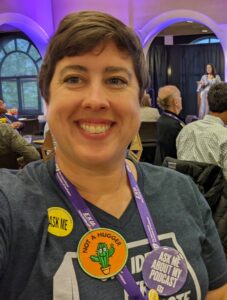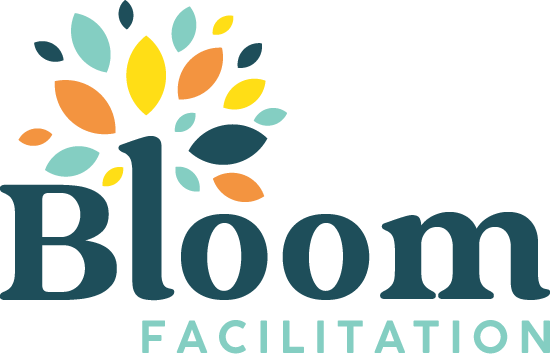The importance of trust
Trust is critical to my work today. When I work with a client, they need to be able to trust me with what’s really going on in their team and in their own thoughts and feelings. They share data with me, give me access to internal systems. It requires even more trust than hiring a new employee.
In my first year of business, seven years ago, I didn’t yet realize what it required of me to be trustworthy.
I didn’t start out trustworthy
I had started my career in outreach and marketing, then moved to volunteer recruitment. These roles matched my natural abilities to network and share my work across town. I loved attending meetings and talking to new people about my projects.
When I first started as a consultant, I continued attending networking events and sharing my work. At a local event, I met someone new and talked about a project for a client. I discussed their team and our solutions. I named the large organization but not specific people. However, Flagstaff is a small community. The person I was speaking to had an “a ha” moment and revealed her husband worked on that team. Oops. I should not have shared those details. It wasn’t my information to share.
Trust is earned and requires deliberate practice

Enjoying the IAF conference in 2024
Today, I am a member of the International Association of Facilitators and follow their Code of Ethics. This includes protecting my client’s privacy and keeping our work confidential unless I have explicit permission to share it. Often, clients don’t mind if I mention our collaboration. However, I assume that even the fact that we are working together is confidential. I do not add anyone to my client list or website until the project is complete and I have their permission.
Untrustworthy common practices
This is not the norm from what I’ve seen. Here are just a few practices that I’ve experienced as a client that I didn’t like and try to avoid doing:
- Taking a picture of the group during the client engagement and sharing it right away on social media. Even if your contract with the client says that you are allowed to take a picture, most of the group wasn’t privy to the contracting process and they often get pressured into posing for a picture that they didn’t consent to.
- Including a requirement for a testimonial in a contract. I was a client of a coach who did this and I almost didn’t work with her because of it. I never provided a testimonial because I objected to the requirement and believed that it was unethical. I am happy to ask for a testimonial or provide a testimonial after we have worked together, but I don’t believe that it should be required or people should be pressured to provide one.
- Having our work recorded or filmed without everyone’s consent. This one is getting trickier with Zoom recordings and AI notetakers, but I try to always remember to ask before we begin if the group would be already with an automatic notetaker and then explain how it will be used.
Additional ways to earn trust
Two more areas where we can build or lose trust in our work together are:
Protecting client data
Information security is a topic that I have been researching. Luckily I have an IT specialist (my husband), who has set up my file back up systems and my password manager. However, I want to continue to look at ways to protect my work and my client’s data from hackers or data breaches.
Creating confidential ways for team members to share
Often, my client work involves gathering input from clients or stakeholders. Sometimes, we need to do this anonymously due to the topic or organizational climate. In the past, I have conducted private interviews, surveys, polls, and focus groups. It is important for the client to understand the value of anonymity. We work together to agree on a data collection method that ensures privacy. For example, when I conduct handwritten surveys, I collect and transcribe the data. This way, no individual survey can be identified by handwriting or order. If I meet with employees privately, I provide an offsite location to ensure confidentiality.
If you are working with a client, I recommend asking these questions:
- How will data be collected, stored and shared?
- When and how will you speak publicly about our work together? Can we choose whether or not to have our work together used in marketing?
- Is there a code of ethics that you adhere to?
What do you do to be trustworthy?
